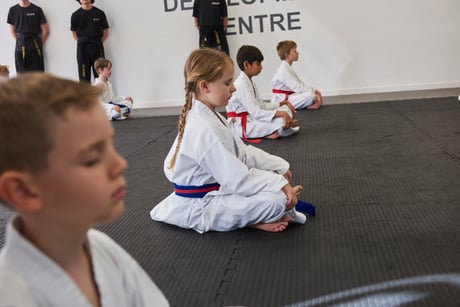 Concentration is a critical skill for children to develop in order to succeed in school and beyond. However, with the increasing amount of distractions in the world today, it can be a challenge for children to stay focused and on task. From screens to social media to everyday interruptions, the modern world presents a constant barrage of distractions that can make it difficult for children to concentrate. Breaking the distraction cycle is essential for children to achieve their full potential and succeed in life.
Concentration is a critical skill for children to develop in order to succeed in school and beyond. However, with the increasing amount of distractions in the world today, it can be a challenge for children to stay focused and on task. From screens to social media to everyday interruptions, the modern world presents a constant barrage of distractions that can make it difficult for children to concentrate. Breaking the distraction cycle is essential for children to achieve their full potential and succeed in life.
What is the Distraction Cycle?
The distraction cycle refers to the repetitive pattern of losing focus and being sidetracked by distractions. This can lead to decreased productivity, decreased motivation, and decreased overall success. The cycle is often fueled by the ease and accessibility of distractions, such as smartphones and social media, which can be tempting for children to engage with. The cycle can also be perpetuated by poor habits and lack of focus techniques, making it even more challenging to break.
The Negative Effects of the Distraction Cycle
The distraction cycle can have significant negative effects on children's lives. When children are frequently distracted, they may struggle to complete tasks, retain information, and perform well in school. This can lead to decreased confidence and self-esteem, as well as decreased motivation to succeed. In addition, the constant distraction can make it difficult for children to form meaningful relationships, as they may struggle to engage in conversations and be present in social situations. The distraction cycle can also impact children's mental health and well-being, leading to stress, anxiety, and other mental health issues.
Strategies for Breaking the Distraction Cycle
Fortunately, there are strategies that parents, teachers, and children can implement to help break the distraction cycle and improve concentration.
Set Goals and Priorities
The first step in breaking the distraction cycle is to set clear goals and priorities. Encourage your child to make a list of what they want to achieve, and then prioritize those goals. This will help your child focus on what is most important and reduce the temptation to be sidetracked by distractions.
 Create a Distraction-Free Environment
Create a Distraction-Free Environment
Another important step in breaking the distraction cycle is to create a distraction-free environment. Encourage your child to find a quiet, clutter-free space to work in and eliminate distractions such as noise, screens, and other distractions. This can be a designated study space or a quiet corner of the house.
Establish a Routine
Routines can be a powerful tool for breaking the distraction cycle. Encourage your child to establish a routine for studying and completing tasks. This will help your child get into the habit of focusing and reduce the temptation to be sidetracked by distractions.
Take Breaks
While it is important for children to stay focused, it is also important to take breaks. Encourage your child to take regular breaks to rest their mind and refocus. This can help reduce fatigue and increase overall concentration.
 Practice Mindfulness and Meditation
Practice Mindfulness and Meditation
Mindfulness and meditation can be powerful tools for breaking the distraction cycle. Encourage your child to practice mindfulness and meditation techniques, such as deep breathing and visualization, to help calm the mind and improve focus.
Get Physical Exercise
Physical exercise can also play a role in breaking the distraction cycle. Encourage your child to get regular physical exercise, such as running, playing sports, or participating in other physical activities. Exercise has been shown to improve brain function and increase focus, making it a valuable tool for breaking the distraction cycle.
Limit Screen Time
Finally, limiting screen time is essential for breaking the distraction cycle. Encourage your child to limit their use of screens, such as smartphones, televisions, and computers, and to use them only for specific, necessary purposes. This will help reduce the temptation to be sidetracked by screens and improve overall concentration.
Conclusion
Breaking the distraction cycle is essential for children to achieve their full potential and succeed in life. By setting goals and priorities, creating a distraction-free environment, establishing a routine, taking breaks, practicing mindfulness and meditation, getting physical exercise, and limiting screen time, children can improve their concentration and break the cycle of distractions. By working together with parents and teachers, children can develop the skills they need to succeed in school and beyond. So, it is important to take the necessary steps to break the distraction cycle and help children reach their full potential.
Learn more about your child's concentration by taking our Breakthrough Area Assessment. Click the button below to get started.


